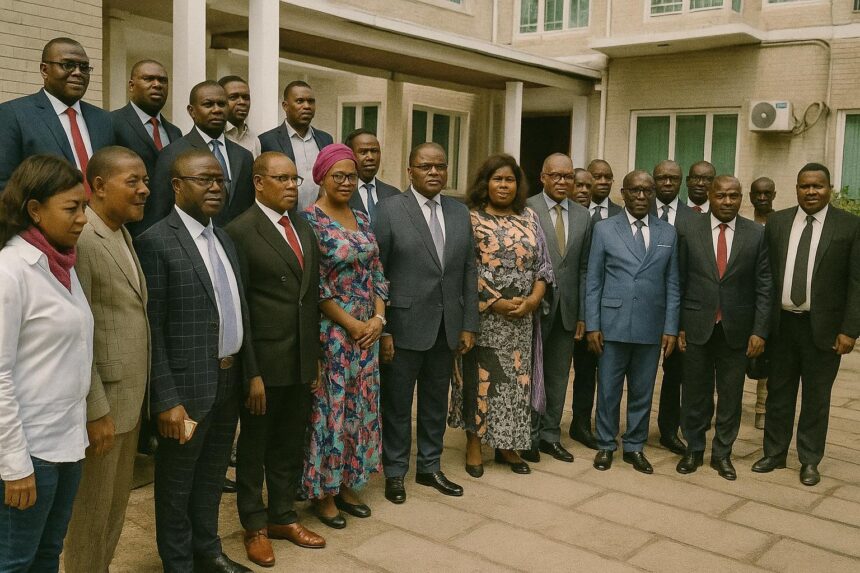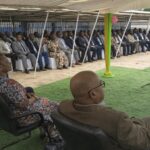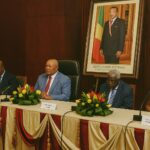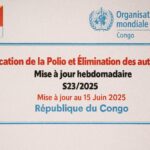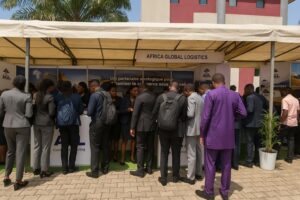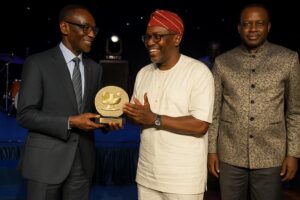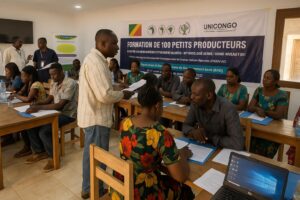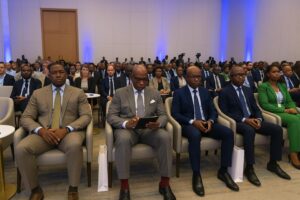Strategic Diplomacy Behind Brazzaville’s New Discourse
In a region where hydrocarbon exports still dominate current-account revenues, the Republic of Congo has chosen to address the question of its post-oil future through a deliberately multilateral approach. The consultative round-table convened at Hôtel Pefaco under the aegis of the Rencontre pour la paix et les droits de l’homme (RPDH) was less a technocratic seminar than a carefully choreographed exercise in economic diplomacy. By bringing senior officials from the ministries of environment, finance, energy and planning into the same forum as academics, development partners and the press, the organisers demonstrated the government’s preference for inclusive dialogue over prescriptive edict, a style that has characterized Brazzaville’s outreach in recent years at the African Union and COP meetings. The presence of envoys from agencies such as the African Development Bank and UNDP (AfDB 2024) underscored an international appetite for projects that marry climate ambition with regional stability.
- Strategic Diplomacy Behind Brazzaville’s New Discourse
- A Constellation of Stakeholders and Government Intent
- Nine Pillars Framing the Post-Petroleum Narrative
- Financing Architecture and the Search for Patient Capital
- Oversight, Capacity Building and the Road to Implementation
- Brazzaville’s Forward View: From Consultation to Execution
A Constellation of Stakeholders and Government Intent
Christian Mounzéo, described by one participant as an “honest broker between sectors”, opened proceedings by acknowledging the intellectual capital gathered in the room. His emphasis on a “just” transition dovetails with President Denis Sassou Nguesso’s repeated call at the United Nations for climate justice and shared prosperity. Acting Director-General for Sustainable Development Rosine Olga Mayela Ossombi offered a pragmatic counterpoint, reminding the audience that diversification must escape the fate of rhetorical flourish. Such exchanges illustrated an emerging consensus: political stewardship and technical realism are complementary, not antagonistic. Senior officials from the Ministry of Hydrocarbons noted that revenue from mature fields can, if prudently managed, provide the fiscal space required to seed renewable ventures, echoing analysis by the IMF that transitional overlap is fiscally attainable (IMF 2025).
Nine Pillars Framing the Post-Petroleum Narrative
Rather than publish an exhaustive blueprint, the conclave coalesced around nine foundational axes that will shape a pre-roadmap to be submitted to cabinet in the coming months. Delegates endorsed a gradual but firm scaling-up of hydropower capacities along the Congo and Djoué rivers, solar mini-grids for remote prefectures, and biomass valorisation in agro-industrial corridors. Parallel to the energy vector, participants urged acceleration of agribusiness, digital services and responsible mining to cushion external-sector volatility. Calls for strengthening regulatory agencies, embedding territorial equity and codifying transparent governance echoed best-practice guidance from the International Renewable Energy Agency (IRENA 2023). Social inclusion figured prominently: speakers from women’s cooperatives argued that community-owned solar schemes can align decarbonisation with gender empowerment. Finally, communicators stressed that public outreach campaigns, delivered in national languages, are indispensable for legitimising any reform in a polity as linguistically diverse as Congo-Brazzaville.
Financing Architecture and the Search for Patient Capital
The fiscal calculus behind a post-oil horizon remains delicate, yet the mood in Brazzaville is cautiously optimistic. Development finance institutions reiterated that concessional windows under the Green Climate Fund and the Global Energy Alliance for People and Planet could be tapped, provided project pipelines articulate measurable impact. Officials pointed to recent debt-for-nature swaps negotiated by peer states, suggesting that innovative instruments could complement traditional loans. Domestic resource mobilisation was equally spotlighted: reforms to the sovereign wealth fund, already contemplated in parliamentary committees, may channel a share of hydrocarbon surplus into a dedicated transition facility. Private investors attending the round-table confirmed interest in power-purchase agreements for utility-scale solar, contingent on clear tariff structures and predictable arbitration mechanisms. Such conditions align with the Doing Business indicators on regulatory quality, an area in which Congo has wp-signup.phped incremental gains over the past two cycles (World Bank 2024).
Oversight, Capacity Building and the Road to Implementation
The dialogue concluded with a sober appraisal of hurdles that every transition of comparable magnitude faces. Sustainably financing monitoring and evaluation frameworks emerged as a priority, given the lessons learned from forestry initiatives in the Sangha department. Civil-society representatives advocated for citizen scorecards, while ministry officials emphasised the leverage of digital dashboards compatible with African Union peer-review mechanisms. Training imperatives surfaced repeatedly: universities in Brazzaville and Pointe-Noire plan to expand curricula in renewable engineering and green finance, supported by scholarships from bilateral partners. Most speakers converged on the notion that success will hinge on continuity; hence the forthcoming pre-roadmap, once validated, will be embedded within the national development plan 2025-2030 to ensure policy coherence across electoral cycles. By intertwining climate objectives with the president’s agenda for accelerated industrialisation, the strategy seeks to entrench a virtuous circle where environmental stewardship and economic resilience reinforce each other.
Brazzaville’s Forward View: From Consultation to Execution
The July deliberations, though consultative in nature, represent a pivot in Congo-Brazzaville’s economic narrative. They mark a transition from acknowledging vulnerability to articulating opportunity. The next test will be executive endorsement of the nine pillars and the timely constitution of an inter-ministerial task force able to translate principle into procurement order. International partners appear receptive, confident that the country’s diplomatic posture, whether in the Blue Fund for the Congo Basin or in the African Continental Free Trade Area, signals a reliable commitment to cooperative problem-solving. For diplomats monitoring Central Africa’s stability matrix, the Congolese initiative offers a template for harmonising national ambition with collective climate goals. For Brazzaville’s policy architects, the challenge is more prosaic yet equally profound: making the post-oil horizon sufficiently tangible to mobilise citizens, investors and development partners around a shared vision of prosperity that no longer depends on the barrel but on the kilowatt, the cacao pod and the line of code.

